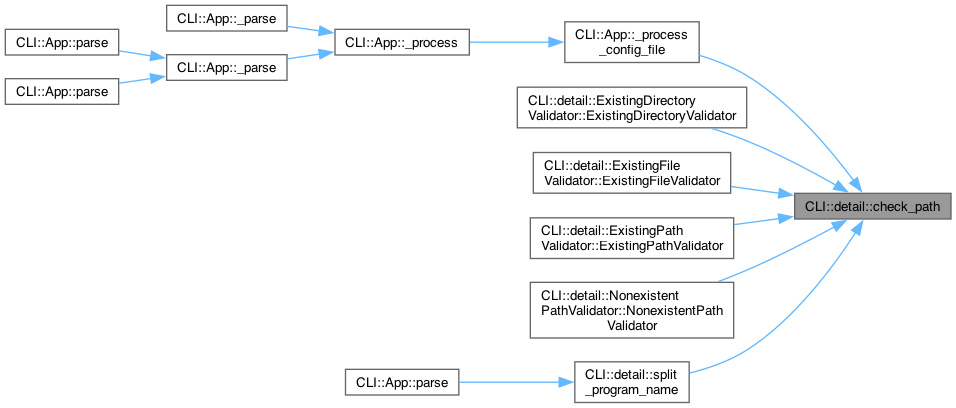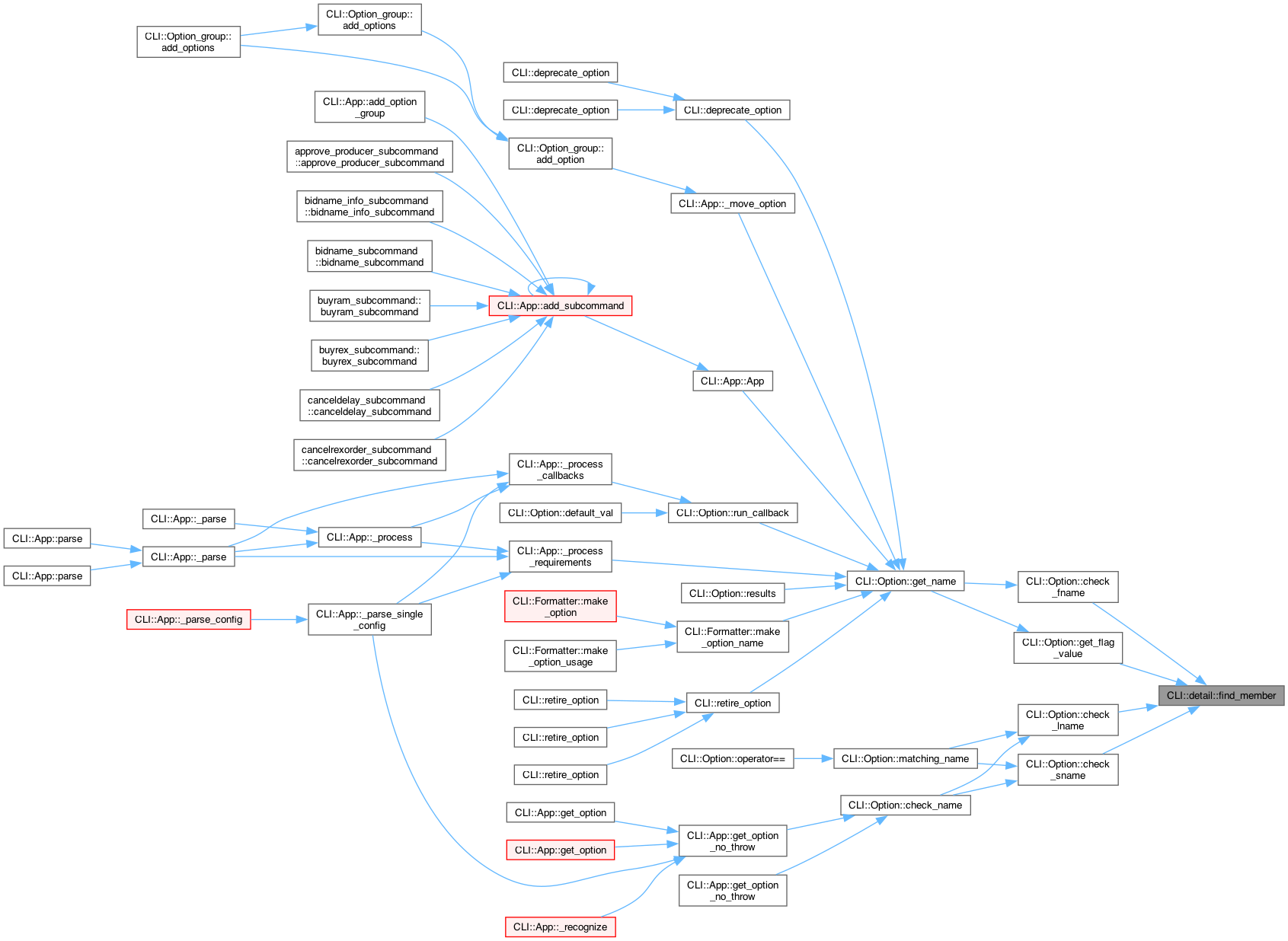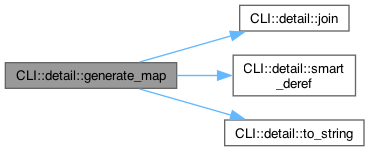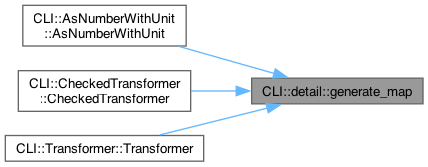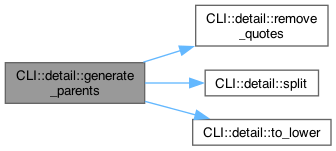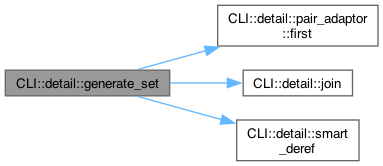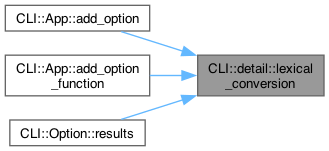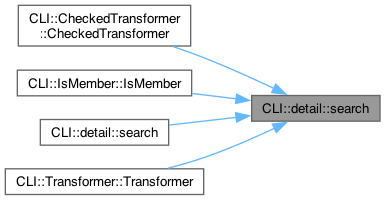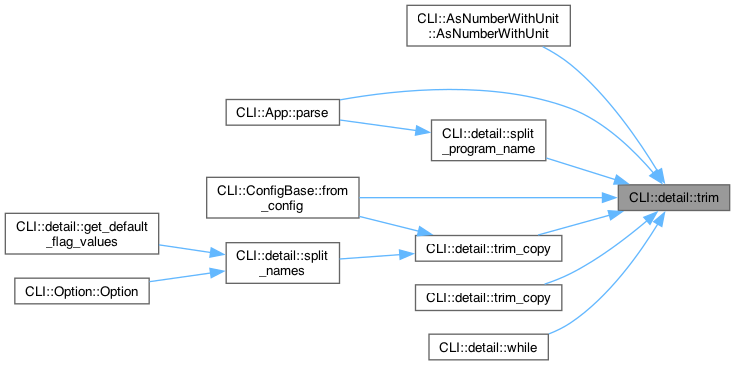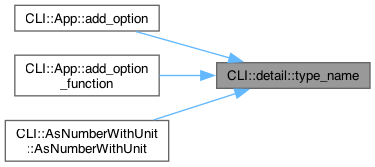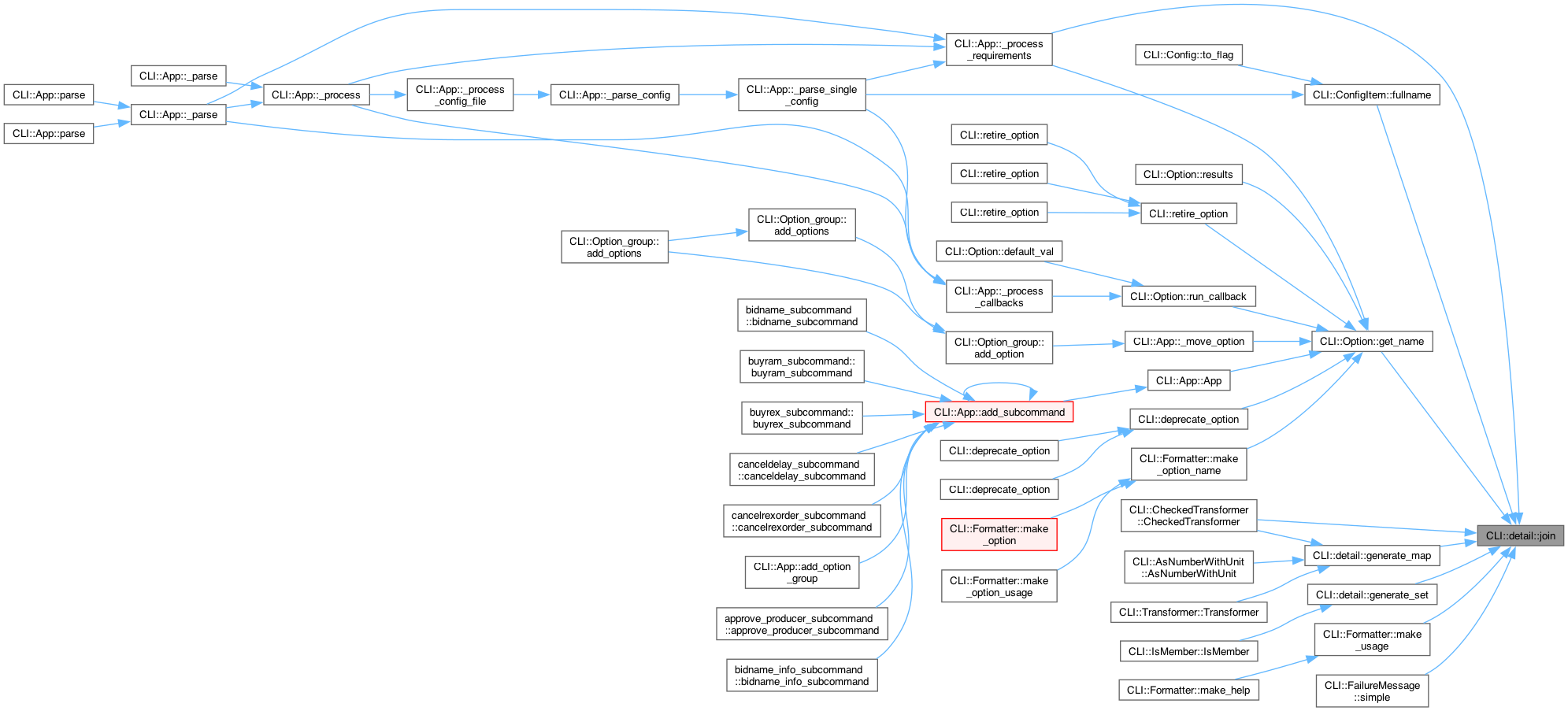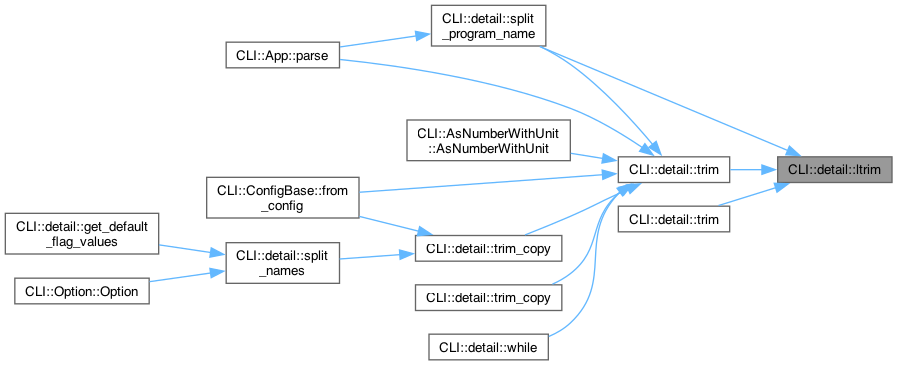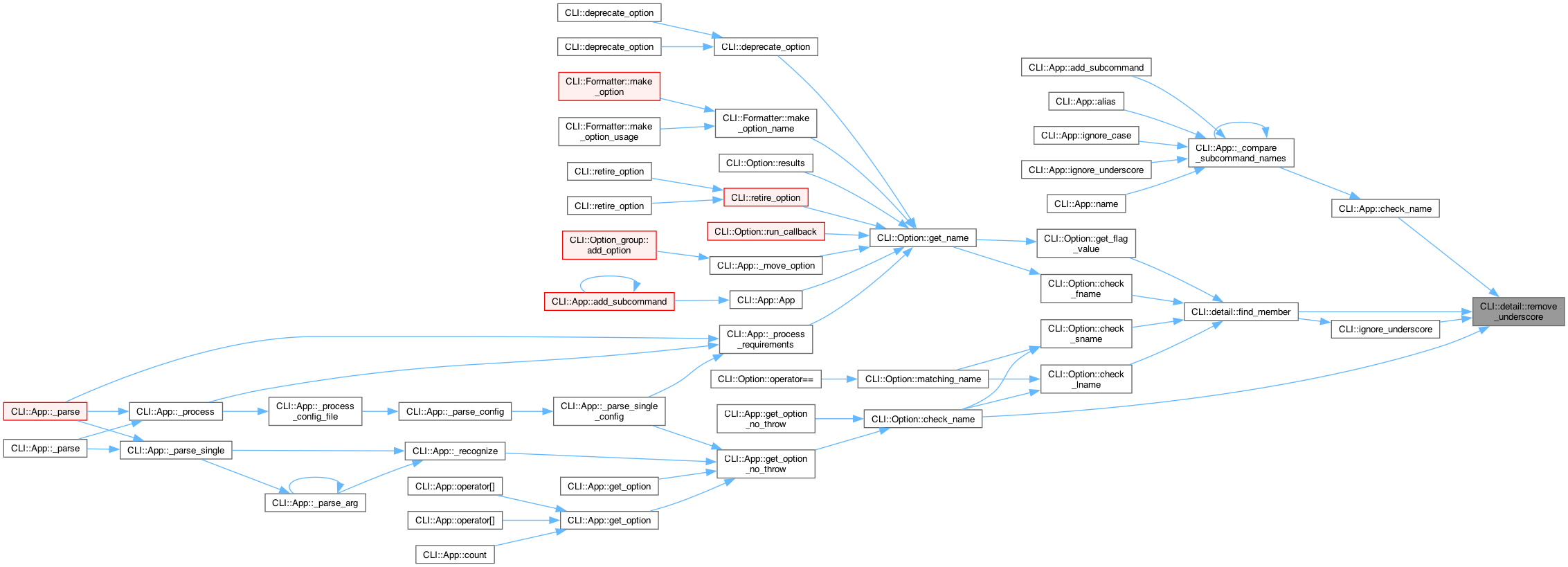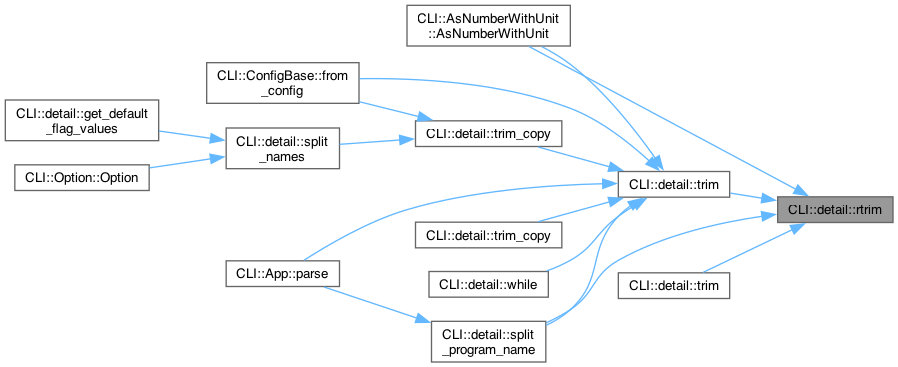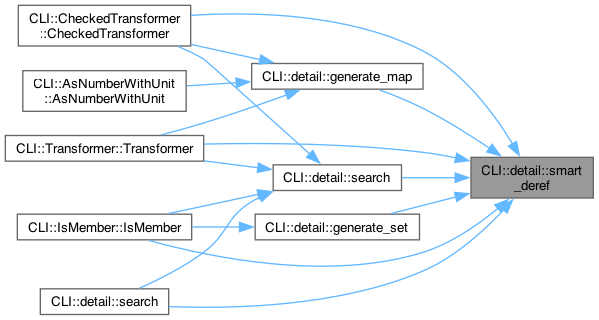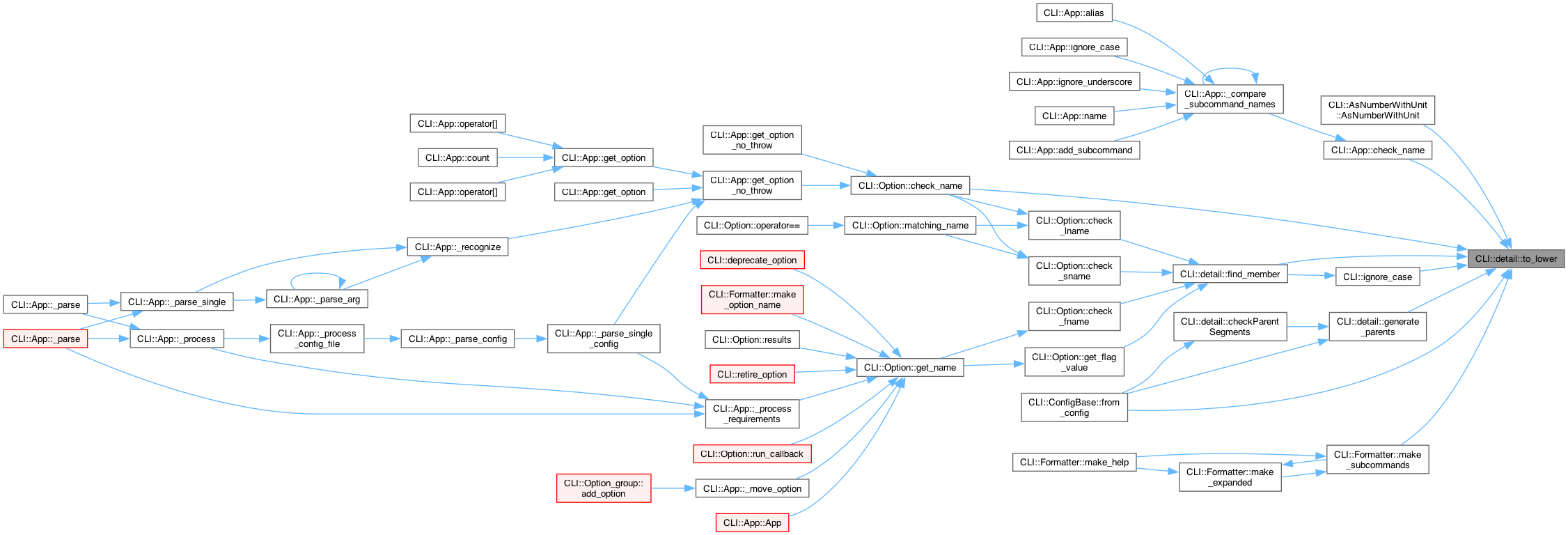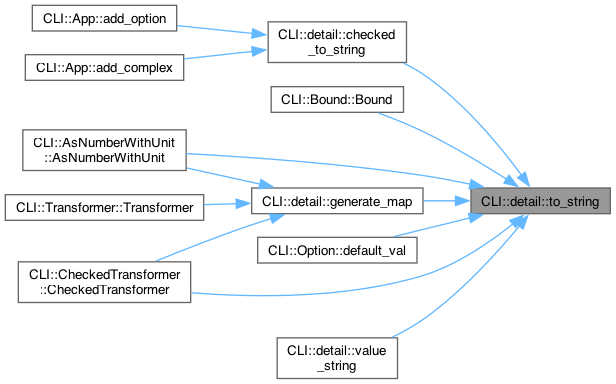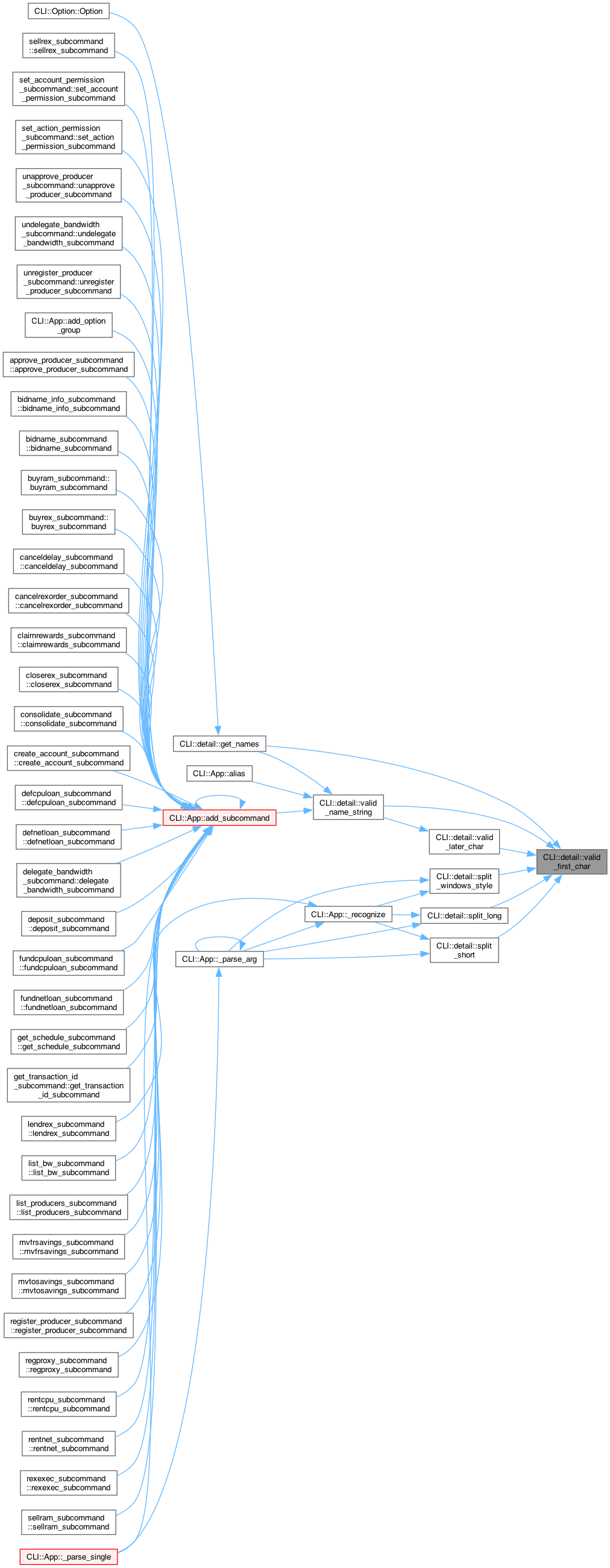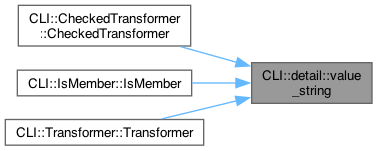|
| std::vector< std::string > | split (const std::string &s, char delim) |
| | Split a string by a delim.
|
| |
| template<typename T > |
| std::string | join (const T &v, std::string delim=",") |
| | Simple function to join a string.
|
| |
| template<typename T , typename Callable , typename = typename std::enable_if<!std::is_constructible<std::string, Callable>::value>::type> |
| std::string | join (const T &v, Callable func, std::string delim=",") |
| | Simple function to join a string from processed elements.
|
| |
| template<typename T > |
| std::string | rjoin (const T &v, std::string delim=",") |
| | Join a string in reverse order.
|
| |
| std::string & | ltrim (std::string &str) |
| | Trim whitespace from left of string.
|
| |
| std::string & | ltrim (std::string &str, const std::string &filter) |
| | Trim anything from left of string.
|
| |
| std::string & | rtrim (std::string &str) |
| | Trim whitespace from right of string.
|
| |
| std::string & | rtrim (std::string &str, const std::string &filter) |
| | Trim anything from right of string.
|
| |
| std::string & | trim (std::string &str) |
| | Trim whitespace from string.
|
| |
| std::string & | trim (std::string &str, const std::string filter) |
| | Trim anything from string.
|
| |
| std::string | trim_copy (const std::string &str) |
| | Make a copy of the string and then trim it.
|
| |
| std::string & | remove_quotes (std::string &str) |
| | remove quotes at the front and back of a string either '"' or '\''
|
| |
| std::string | trim_copy (const std::string &str, const std::string &filter) |
| | Make a copy of the string and then trim it, any filter string can be used (any char in string is filtered)
|
| |
| std::ostream & | format_help (std::ostream &out, std::string name, std::string description, std::size_t wid) |
| | Print a two part "help" string.
|
| |
| template<typename T > |
| bool | valid_first_char (T c) |
| | Verify the first character of an option.
|
| |
| template<typename T > |
| bool | valid_later_char (T c) |
| | Verify following characters of an option.
|
| |
| bool | valid_name_string (const std::string &str) |
| | Verify an option name.
|
| |
| bool | isalpha (const std::string &str) |
| | Verify that str consists of letters only.
|
| |
| std::string | to_lower (std::string str) |
| | Return a lower case version of a string.
|
| |
| std::string | remove_underscore (std::string str) |
| | remove underscores from a string
|
| |
| std::string | find_and_replace (std::string str, std::string from, std::string to) |
| | Find and replace a substring with another substring.
|
| |
| bool | has_default_flag_values (const std::string &flags) |
| | check if the flag definitions has possible false flags
|
| |
| void | remove_default_flag_values (std::string &flags) |
| |
| std::ptrdiff_t | find_member (std::string name, const std::vector< std::string > names, bool ignore_case=false, bool ignore_underscore=false) |
| | Check if a string is a member of a list of strings and optionally ignore case or ignore underscores.
|
| |
| template<typename Callable > |
| std::string | find_and_modify (std::string str, std::string trigger, Callable modify) |
| |
| | trim (str) |
| |
| | while (!str.empty()) |
| |
| template<typename T , enable_if_t< is_istreamable< T >::value, detail::enabler > = detail::dummy> |
| bool | from_stream (const std::string &istring, T &obj) |
| | Templated operation to get a value from a stream.
|
| |
| template<typename T , enable_if_t< std::is_constructible< std::string, T >::value, detail::enabler > = detail::dummy> |
| auto | to_string (T &&value) -> decltype(std::forward< T >(value)) |
| | Convert an object to a string (directly forward if this can become a string)
|
| |
| template<typename T , enable_if_t<!std::is_constructible< std::string, T >::value &&is_ostreamable< T >::value, detail::enabler > = detail::dummy> |
| std::string | to_string (T &&value) |
| | Convert an object to a string (streaming must be supported for that type)
|
| |
| template<typename T1 , typename T2 , typename T , enable_if_t< std::is_same< T1, T2 >::value, detail::enabler > = detail::dummy> |
| auto | checked_to_string (T &&value) -> decltype(to_string(std::forward< T >(value))) |
| | special template overload
|
| |
| template<typename T1 , typename T2 , typename T , enable_if_t<!std::is_same< T1, T2 >::value, detail::enabler > = detail::dummy> |
| std::string | checked_to_string (T &&) |
| | special template overload
|
| |
| template<typename T , enable_if_t< std::is_arithmetic< T >::value, detail::enabler > = detail::dummy> |
| std::string | value_string (const T &value) |
| | get a string as a convertible value for arithmetic types
|
| |
| template<typename T , enable_if_t<!std::is_enum< T >::value &&!std::is_arithmetic< T >::value, detail::enabler > = detail::dummy> |
| auto | value_string (const T &value) -> decltype(to_string(value)) |
| | for other types just use the regular to_string function
|
| |
| template<typename T , enable_if_t< classify_object< T >::value==object_category::integral_value||classify_object< T >::value==object_category::integer_constructible, detail::enabler > = detail::dummy> |
| constexpr const char * | type_name () |
| | Print name for enumeration types.
|
| |
| std::size_t I std::enable_if< I==type_count< T >::value, std::string >::type | tuple_name () |
| |
| | if (str.back()==',') str.pop_back() |
| |
| std::size_t I inline typename bool ::type | tuple_conversion (const std::vector< std::string > &, T &) |
| |
| template<class T , class XC , enable_if_t< is_tuple_like< T >::value, detail::enabler > = detail::dummy> |
| bool | lexical_conversion (const std::vector< std ::string > &strings, T &output) |
| | Conversion for tuples.
|
| |
| template<typename T , enable_if_t< std::is_integral< T >::value &&std::is_unsigned< T >::value, detail::enabler > = detail::dummy> |
| void | sum_flag_vector (const std::vector< std::string > &flags, T &output) |
| |
| bool | split_short (const std::string ¤t, std::string &name, std::string &rest) |
| |
| bool | split_long (const std::string ¤t, std::string &name, std::string &value) |
| |
| bool | split_windows_style (const std::string ¤t, std::string &name, std::string &value) |
| |
| std::vector< std::string > | split_names (std::string current) |
| |
| std::vector< std::pair< std::string, std::string > > | get_default_flag_values (const std::string &str) |
| | extract default flag values either {def} or starting with a !
|
| |
| std::tuple< std::vector< std::string >, std::vector< std::string >, std::string > | get_names (const std::vector< std::string > &input) |
| | Get a vector of short names, one of long names, and a single name.
|
| |
| path_type | check_path (const char *file) noexcept |
| | get the type of the path from a file name
|
| |
| template<typename T , enable_if_t< is_copyable_ptr< typename std::remove_reference< T >::type >::value, detail::enabler > = detail::dummy> |
| auto | smart_deref (T value) -> decltype(*value) |
| |
| template<typename T , enable_if_t<!is_copyable_ptr< typename std::remove_reference< T >::type >::value, detail::enabler > = detail::dummy> |
| std::remove_reference< T >::type & | smart_deref (T &value) |
| |
| template<typename T > |
| std::string | generate_set (const T &set) |
| | Generate a string representation of a set.
|
| |
| template<typename T > |
| std::string | generate_map (const T &map, bool key_only=false) |
| | Generate a string representation of a map.
|
| |
| template<typename T , typename V , enable_if_t<!has_find< T, V >::value, detail::enabler > = detail::dummy> |
| auto | search (const T &set, const V &val) -> std::pair< bool, decltype(std::begin(detail::smart_deref(set)))> |
| | A search function.
|
| |
| template<typename T , typename V > |
| auto | search (const T &set, const V &val, const std::function< V(V)> &filter_function) -> std::pair< bool, decltype(std::begin(detail::smart_deref(set)))> |
| | A search function with a filter function.
|
| |
| template<typename T > |
| std::enable_if< std::is_signed< T >::value, T >::type | overflowCheck (const T &a, const T &b) |
| | Do a check for overflow on signed numbers.
|
| |
| template<typename T > |
| std::enable_if<!std::is_signed< T >::value, T >::type | overflowCheck (const T &a, const T &b) |
| | Do a check for overflow on unsigned numbers.
|
| |
| template<typename T > |
| std::enable_if< std::is_integral< T >::value, bool >::type | checked_multiply (T &a, T b) |
| | Performs a *= b; if it doesn't cause integer overflow. Returns false otherwise.
|
| |
| template<typename T > |
| std::enable_if< std::is_floating_point< T >::value, bool >::type | checked_multiply (T &a, T b) |
| | Performs a *= b; if it doesn't equal infinity. Returns false otherwise.
|
| |
| std::pair< std::string, std::string > | split_program_name (std::string commandline) |
| |
| std::string | convert_arg_for_ini (const std::string &arg) |
| |
| std::string | ini_join (const std::vector< std::string > &args, char sepChar=',', char arrayStart='[', char arrayEnd=']') |
| | Comma separated join, adds quotes if needed.
|
| |
| std::vector< std::string > | generate_parents (const std::string §ion, std::string &name) |
| |
| void | checkParentSegments (std::vector< ConfigItem > &output, const std::string ¤tSection) |
| | assuming non default segments do a check on the close and open of the segments in a configItem structure
|
| |
